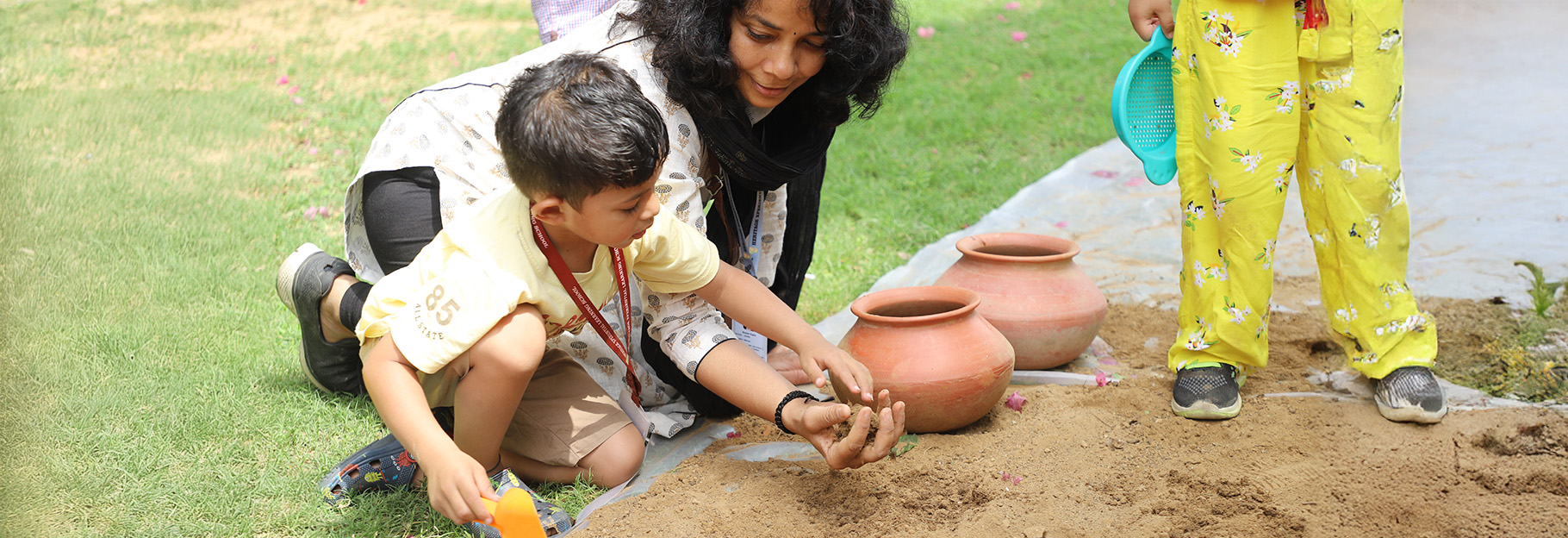How Quality Preschool Education Fuels Early Childhood Development
The first eight years of a child's life are among the most transformative. During this period, children undergo rapid cognitive, emotional, social, and physical growth. Research consistently shows that the experiences and interactions children encounter during these formative years significantly shape their future well-being, learning potential, and overall success.
Among the many factors influencing early development, quality preschool education plays a critical role. In this blog, we explore how a strong preschool foundation can enrich a child's early developmental journey and set the stage for lifelong learning.
Cognitive Growth: Laying the Groundwork for Learning
Cognitive development is at the heart of early education. A well-structured preschool curriculum introduces children to fundamental concepts through age-appropriate activities like storytelling, puzzles, imaginative play, and simple science experiments. These hands-on experiences enhance memory, reasoning, and problem-solving skills—key capabilities for academic success.
In a landmark study by the National Institute for Early Education Research (NIEER), children enrolled in high-quality preschool programs performed significantly better in reading and math by third grade than those who did not attend. Such findings underscore the lasting impact of early cognitive stimulation through structured education.
Emotional and Social Development: Learning to Relate
Preschool is often a child's first experience interacting consistently with peers outside the family. These social settings foster vital life skills like sharing, cooperation, empathy, and conflict resolution. Through guided group activities and free play, children begin to understand emotions—both their own and others’—laying the foundation for healthy relationships.
A study published in Child Development found that children who attended preschool displayed stronger social skills and fewer behavioral issues later in life. These early emotional competencies are crucial for adjusting to new environments, from primary school classrooms to future workplaces.
Language and Communication: Finding Their Voice
Language development flourishes in a preschool environment rich in verbal interaction. Educators use storytelling, songs, rhymes, and dialogue to nurture both receptive (understanding) and expressive (speaking) language skills. These engaging practices help build vocabulary and improve sentence construction.The American Academy of Pediatrics emphasizes that early exposure to language significantly enhances literacy outcomes. Preschoolers immersed in a language-rich setting are more likely to become confident readers and communicators, giving them a strong academic edge.
Physical Development: Moving with Purpose
Preschool isn’t just about the mind—it nurtures the body, too. Daily routines often include physical activities like dancing, outdoor play, and art, which help children refine both gross and fine motor skills. These movements support hand-eye coordination, balance, and physical stamina.
Beyond movement, preschools also instill healthy habits. Nutritional snacks, hygiene education, and routines around rest and physical activity contribute to lifelong wellness. According to the Centers for Disease Control and Prevention (CDC), integrating health practices in early education positively impacts long-term health outcomes.
The Power of Play: Learning by Doing
Play is not a break from learning—it is learning. Play-based education, a hallmark of many preschools, allows children to explore ideas, roles, and relationships in imaginative ways. Whether building with blocks, engaging in pretend play, or exploring nature, children learn through doing.
Psychologist Jean Piaget famously highlighted that play is essential for intellectual development, as it helps children make sense of the world. Through play, they develop abstract thinking, creativity, and the ability to connect new ideas with past experiences—skills that serve them well into adulthood
School Readiness: Preparing for a Lifetime of Learning
Preschool helps children transition smoothly into formal schooling. It cultivates traits like attentiveness, independence, persistence, and the ability to follow instructions—skills essential for succeeding in structured academic environments.
A Harvard Graduate School of Education study found that students who attended high-quality preschools were more likely to graduate from high school, pursue higher education, and establish successful careers. Early investment in learning, therefore, leads to long-term gains not only in education but across all areas of life.
Empowering Families and Strengthening Communities
The benefits of preschool extend beyond the classroom. Many high-quality programs actively involve families, equipping parents with tools to reinforce learning at home. This partnership fosters consistent development and stronger parent-child relationships.
Moreover, communities that prioritize early childhood education often see broader societal benefits—reduced crime rates, increased workforce participation, and improved social cohesion. Investing in preschool is, in essence, investing in a brighter future for all.
Bridging Gaps: Promoting Equity Through Early Education
Access to quality preschool can be a powerful equalizer, particularly for children from underprivileged backgrounds. Without early learning opportunities, these children often start school at a disadvantage. Equitable access to preschool helps level the playing field and improves long-term outcomes.
According to the Economic Policy Institute, children from low-income families who attend quality preschool are more likely to excel academically and less likely to require special education services later. This demonstrates how early education can break cycles of poverty and promote social mobility.
Conclusion: Building Bright Futures One Child at a Time
The value of good preschool education in early childhood development is both profound and far-reaching. From nurturing young minds to shaping social skills, encouraging healthy habits, and building future-ready learners, the benefits are undeniable.
As parents, educators, and community leaders, our role is to champion high-quality preschool experiences. By doing so, we empower children to thrive—not just in school, but in life. The early years truly are the foundation of the future—and with the right start, every child can soar.

20 Comment
Mangesh Sawant
Lorem ipsum, dolor sit amet consectetur adipisicing elit. Sed, velit officiis. Dolorum, deleniti necessitatibus nostrum labore quo soluta sed tempora ea, nam eaque sint, nemo rerum molestias vitae ratione porro?